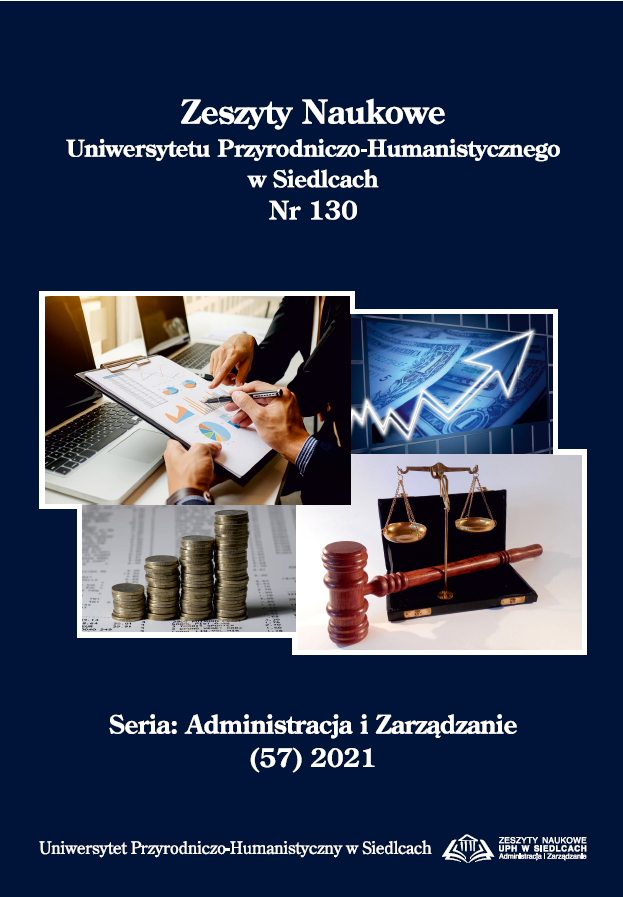THE INFLUENCE OF THE SARS-CoV-2 PANDEMIC ON LOANS IN BUCHAREST-ILFOV
DOI:
https://doi.org/10.34739/zn.2021.57.03Keywords:
loans, COVID-19 pandemic, real estateAbstract
Recourse to a loan in the case of individuals is an expression of the growing desire to improve their living conditions, and to be able to purchase goods that meet the requirements of today's life. During the pandemic of SARS-CoV-2, there have been other requirements, different from those of the previous period, and loans could be one of the ways to solve the new problems of the population of Bucharest-Ilfov. The purpose of this study is to analyze the evolution of loans for the population of Bucharest-Ilfov in the pre-pandemic period and from the beginning of the pandemic and to understand the attitude that credit consumers may have during this period. The objectives of the study are to identify how the credited funds were used, in addition to the size of the amounts accessed. The credited amount represents only a dimensional, quantitative component, but what was purchased with the amount accessed through a loan is a qualitative component. The data were provided, without exposing the personal data of those who accessed a loan, by the National Bank, through FGDB. The results provide a clear picture of the increasing trend of the quantitative side, but there is a greater attention between the amounts credited in lei and those in foreign currency. Equally, the purpose for which these funds were accessed was oriented towards the goods of maximum necessity. Of these, real estate occupies a superior position, while the opposite population is loans for tourist services.
Downloads
Downloads
Published
Issue
Section
License
Copyright (c) 2022 Zeszyty Naukowe UPH seria Administracja i Zarządzanie

This work is licensed under a Creative Commons Attribution-NonCommercial-NoDerivatives 4.0 International License.





